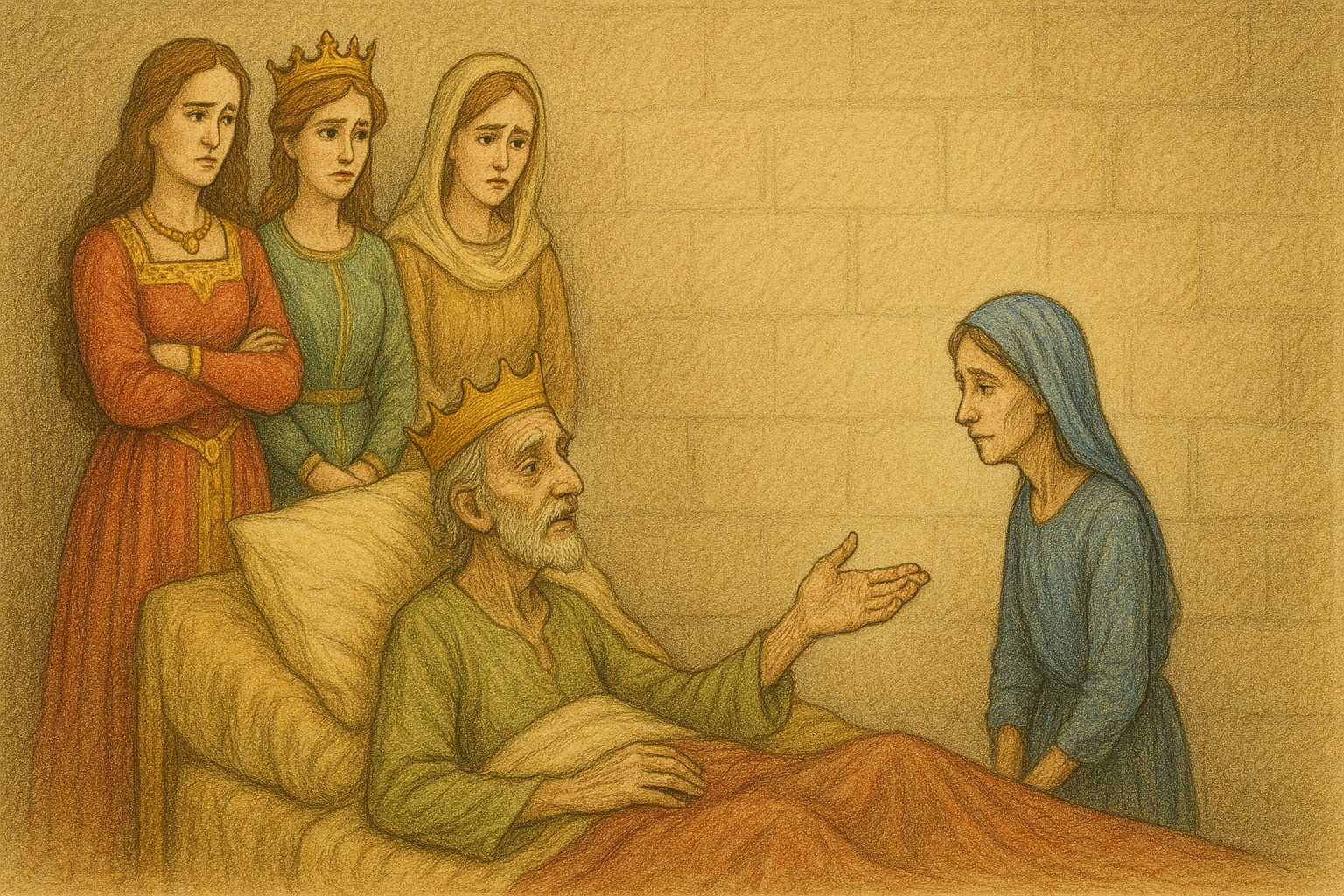Once upon a time, there was a king who had four wives. He loved his fourth wife more than the others and adorned her with rich garments, indulging her with the finest delicacies. He gave her only the best. He also loved his third wife dearly and often showed her off to neighboring kingdoms. Yet, he feared that one day she might leave him for another.
He also loved his second wife. She was his confidante, always kind, considerate, and patient with him. Whenever the king faced a problem, he relied on her to help him through difficult times. The king’s first wife was a very loyal companion who had contributed greatly to maintaining his wealth and kingdom. However, he did not love his first wife, and though she loved him deeply, he hardly noticed her.
One day, the king fell ill and realized his time was running short. Reflecting on his luxurious life, he thought: “Now I have four wives with me, but when I die, will any of them accompany me?”
So, he asked his fourth wife: “I have loved you more than the others, clothed you in the finest garments, and taken great care of you. Now that I am dying, will you follow me and keep me company?” “No way!” replied the fourth wife, walking away without another word. Her answer pierced his heart like a sharp knife.
The saddened king then asked his third wife: “I have loved you all my life. Now that I am dying, will you follow me and keep me company?” “No!” she answered. “Life is too good! When you die, I plan to remarry!”
Next, he asked his second wife: “I have always turned to you for help, and you have always been there for me. When I die, will you follow me and keep me company?” “I’m sorry, I can’t help you this time!” she replied. “The most I can do is bury you.”
As soon as the second wife finished speaking, the king heard a voice say: “I will go with you and follow you wherever you go.” He turned and saw his first wife. She was thin and malnourished. Deeply moved, the king said: “I should have taken better care of you when I had the chance!”
In truth, we all have four wives in our lives.
Our fourth wife is our body. No matter how much time and effort we spend to make it look good, it will leave us when we die.
Our third wife is our possessions, status, and wealth. When we die, they will be left to others.
Our second wife is our family and friends. No matter how much they have supported us in life, the most they can do is accompany us to the grave.
Our first wife is our soul, often neglected in the pursuit of earthly pleasures and comfort.
Yes, we have a spiritual and immortal soul. The pagans sensed this, and some even affirmed it. Faith confirms this truth for us, but even without faith, reason tells us the same. As the Catechism of the Catholic Church states (cf. #33), the longing for eternity we feel within—our openness to truth and beauty, our sense of moral goodness, the experience of our freedom, and the voice of our conscience—all point to our aspiration for the infinite and eternal happiness. These are signs that we have a spiritual soul. It is the seed of eternity within us, irreducible to mere matter, speaking of its spirituality and its survival beyond the death of the body.
The soul, made for God, is worth more than the entire universe. If things are valued by their cost, remember that while the universe cost God but a single word (as Psalm 148 says: He spoke, and it came to be), the soul of man cost the precious blood of Christ (cf. 1 Peter 1:19).


